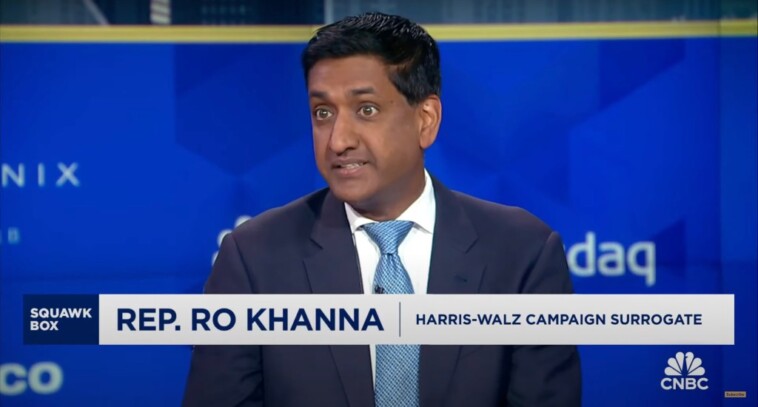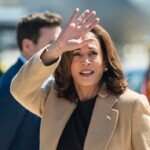It’s a no go for Ro.
Progressive Rep. Ro Khanna (D-Calif.) warned Vice President Kamala Harris Wednesday against pursuing a tax on unrealized capital gains despite Harris signaling support for President Biden’s fiscal year 2025 budget proposal that would do just that.
“Let’s say you’re an entrepreneur, you create a company, it gets to $100 million or $200 million on paper. Now if you’re taxing that, you’re probably going to force that person to sell it,” Khanna, whose Silicon Valley-based district is the wealthiest in the US, told CNBC’s “Squawk Box.”
“Do you really want the entrepreneurs to be forced to sell their companies to larger institutions and to decline in value? I don’t think that’s what you want for a startup ecosystem,” added Khanna, who did not mention his fellow Californian by name.
For most capital assets, taxes are levied after their sale, meaning rich individuals can accrue more wealth as the value of the asset grows over time.
By contrast, traditional income gets taxed by the government throughout each year.
This has led to a strategy called “buy, borrow, die” in which wealthy individuals borrow against an asset to get cash from the unrealized capital gains without facing taxes on it.
Many progressives have complained that the capital gains tax system in the US enables the rich to skirt their obligations to Uncle Sam.
Khanna said Wednesday that “I get why” many of his fellow partisans are pushing to collect more taxes from the wealthy before adding: “This is not the right way to do it.
“And also, 90, 95% of investments in startups fail,” he added, “and so you’re going to disincentivize investments in those startups.”
As an alternative, Khanna suggested the government could tax the loans that wealthy individuals use to take advantage of the capital gains tax structure.
Hours after Khanna’s appearance, Harris called for a top rate of 28% on long-term capital gains for individuals making at least $1 million per year. Currently, the top capital gains tax rate is 20%.
President Biden’s budget for fiscal year 2025 featured a policy that would tax capital gains up to 44.6% at the highest level, per some analyses of the plan that were predicated on Biden’s push for a top rate of 39.6% along with a 5% investment-income tax.
“Billionaires and big corporations must pay their fair share in taxes,” Harris declared during a rally in New Hampshire Wednesday. “It’s just not right that those who can most afford it are often paying a lower tax rate than our teachers and our nurses and our firefighters.
“We will tax capital gains at a rate that rewards investment in America’s innovators, founders and small businesses.”
Harris, 59, billed her plan as a “billionaire minimum tax,” on the heels of her campaign revealing support for an expansion of the startup expense deduction from $5,000 to $50,000.
“When the government encourages investment, it leads to broad-based economic growth,” she told supporters, “and it creates jobs, which makes our economy stronger.”





